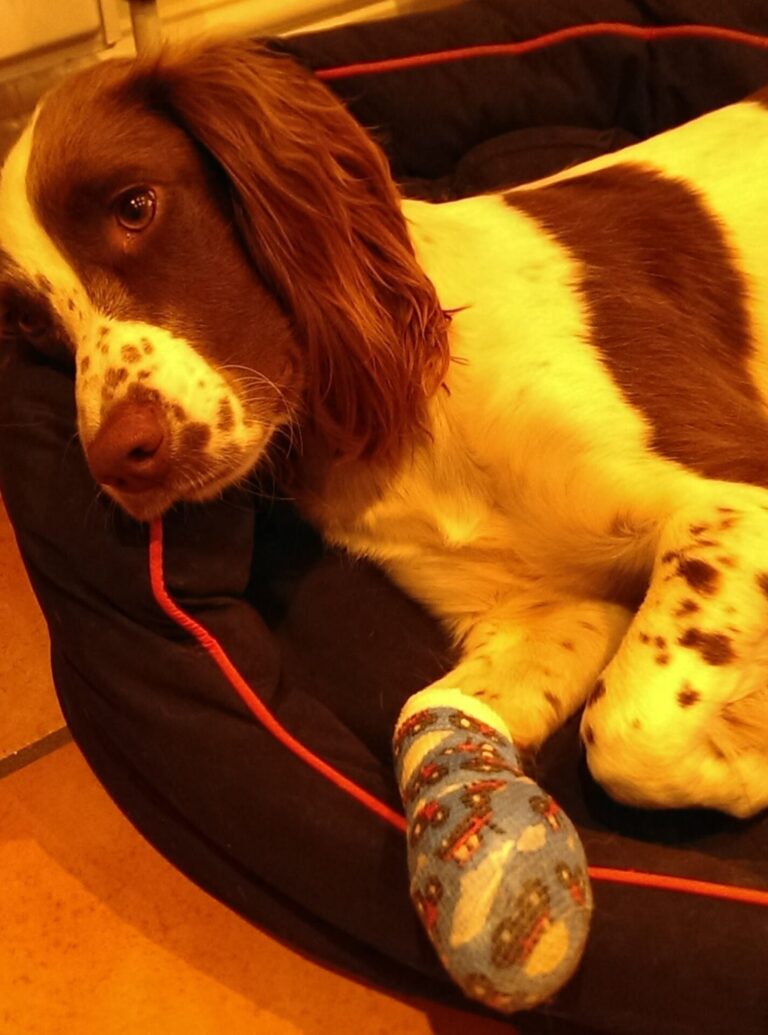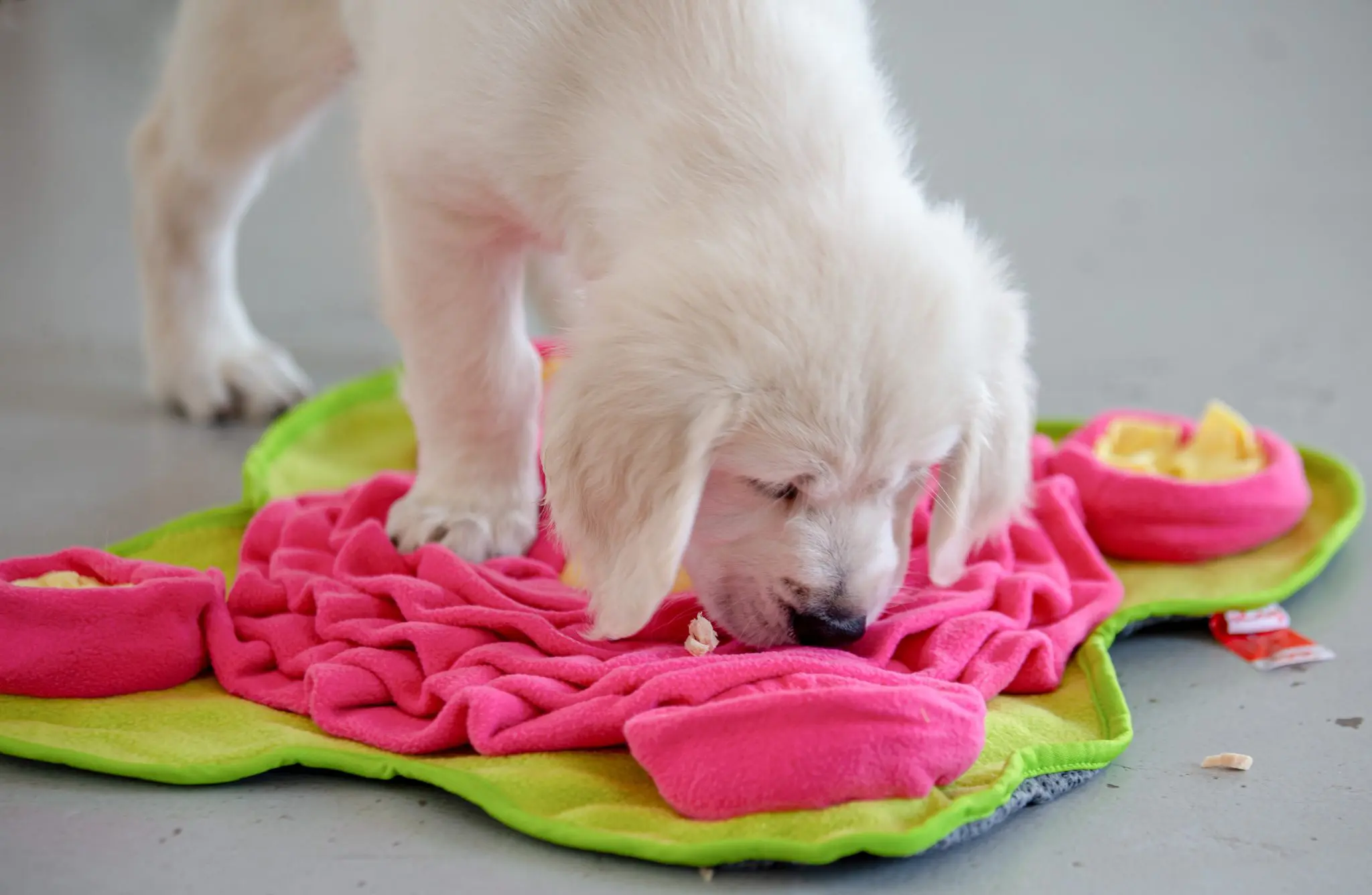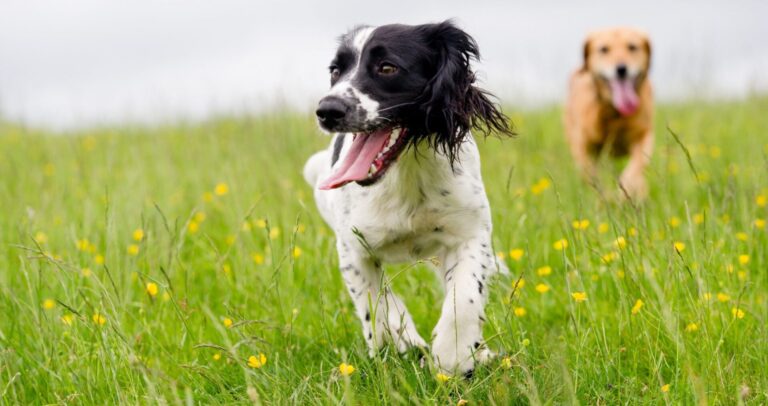It can be a worrying time after surgery, illness or injury and finding the right activities for dogs recovering from a set-back can be a challenge. Whilst dogs are intelligent and curious creatures, they thrive on physical activity and often won’t self-manage the amount they exert themselves. When our dogs face the challenges of surgery, injury or illness, it’s crucial to keep their bodies rested for proper healing. However, a dog’s active mind still craves stimulation.
To ensure your dog stays mentally engaged during recovery, here are 10 games for dogs recovering from surgery or injury. If you would like arrange a session to explore how we can help your dog through all aspects of their recovery period book a one to one training session with me here.
- Interactive Puzzle Toys: Invest in interactive puzzle toys designed to challenge your dog’s problem-solving skills. These toys often come with hidden compartments for treats or kibble. As your dog manipulates the toy to retrieve the goodies, they engage in a mentally stimulating activity that provides both entertainment and reward. Some of the best puzzle toys are rated for a training level difficulty; start with something fairly easy for you dog to do before trying one of the more challenging puzzles.
- DIY Treat Dispenser: Create your own treat dispenser using a plastic bottle. Cut a few holes in the bottle, place some treats inside, and let your dog roll, paw, and nudge the bottle to release the treats. This homemade puzzle encourages your dog to use their nose and paws, providing mental stimulation and a tasty reward. You can make this a little harder but adding some screwed up newspaper to the bottle to slow the stream of treats.
- Frozen Treats in a Kong: Fill a Kong toy with a mixture of soften kibble and treats, then freeze it. The challenge of extracting the frozen goodies will keep your dog entertained for an extended period. This game not only exercises their brain but also helps soothe teething puppies or provides relief on hot days.
- Hide and Seek: Engage your dog’s natural instincts by playing a gentle game of hide and seek. Start by hiding in an easily discoverable spot, and when your dog finds you, reward them with praise and treats. As your dog gets the hang of the game, make it more challenging by hiding in different locations or adding a command like “find me.”
- Snuffle Mat: These are fantastic toys as they mimic the natural scavenging behaviour whilst providing mental stimulation through scent exploration. Every pet shop will sell a wide range of snuffle mats, but ,if you are feeling creative, you can make your own DIY snuffle mat. To do this just tie short strips of fabric onto a rubber mat or an old doormat. Sprinkle your dog’s kibble or treats on the mat, and let them use their nose to forage for the hidden goodies. The grass in the garden also makes a fantastic, natural snuffle mat!

- Name That Toy: Enhance your dog’s vocabulary by playing a game of “Name That Toy.” Begin by giving each of your dog’s toys a distinct name. During playtime, ask your dog to fetch a specific toy by name. This not only challenges their memory but also strengthens the communication between you and your dog.
- Obstacle Course Fun: Set up a mini obstacle course in your garden or living room using household items like cups, towel ( clothes airer) tunnels, and very low hurdles. Gently guide your dog through the course using treats and praise. This not only engages their problem-solving skills but also provides physical exercise in a mentally stimulating environment.
- Training Sessions: Use the recovery period to reinforce or teach new skills. Short training sessions can be mentally tiring for dogs and provide a sense of accomplishment. Keep it positive and reward-based to make it an enjoyable experience for your pup.
- Audiobooks and Calming Music: Dogs respond well to soothing sounds. Play audiobooks or calming music at a low volume to provide a comforting environment. This can be particularly helpful if your dog is spending more time resting than usual.
- Grooming and Massage Sessions: Turn grooming sessions into a relaxing and mentally enriching experience. Use gentle brushes, massage tools, or grooming gloves to provide your dog with a soothing massage. This not only promotes relaxation but also strengthens the bond between you and your dog.
Ensuring your dog’s mental well-being during the recovery period is as important as their physical healing. By incorporating these mentally stimulating activities, you can help keep your dog engaged, happy, and on the road to a full recovery. Always consult with your vet to ensure that these activities are suitable for your dog’s specific condition and stage of recovery.


